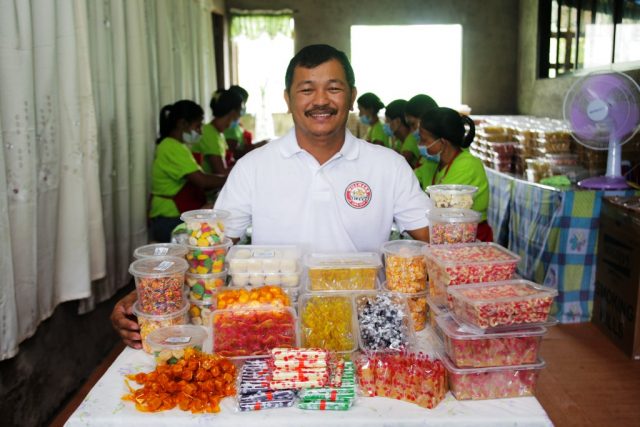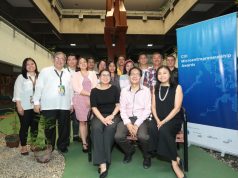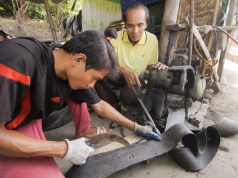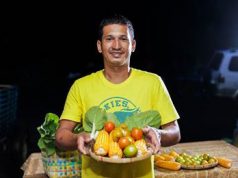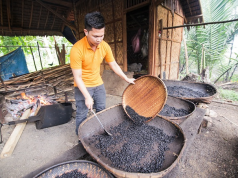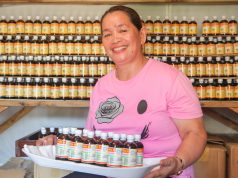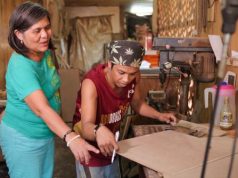MANILA – “In business, hard work and perseverance are not enough. You also need a strategy and should like what you are doing and have the heart for it.” These are the wise words of Wilberto Dagame, this year’s recipient of the Special Award for Community Leadership of the annual Citi Microentrepreneurship Awards (CMA).
Dagame, who hails from Lipa, Batangas, learned these lessons from experience. His successful yema (milk candy) business fell victim to the “hot pandesal” syndrome. Simply put, that’s when people see that a business is flourishing and everybody decides to venture into the same enterprise. Naturally, that will result in saturating the market with the same product without regard for the basics of supply and demand and then the businesses start to fail.
Dagame, who learned how to make yema from a Cebuano entrepreneur who visited their community, fell victim to the syndrome. As his enterprise grew steadily, several people in his community went into the same business. The competition and oversupply led to the lowering of prices, which forced Dagame to close shop, temporarily as it turned out.
With no business to attend to, Dagame, who only finished third grade, used his free time to attend different training activities and seminars on running a business, learning new ways and strategies to improve management. After a few years, Dagame resumed his candy-making business, offering this time a more diversified product range, including new varieties of yema-based pastries and candies.
Starting with a P5,000 loan from Bangko Kabayan as capital, Dagame’s estimated average annual sale now runs to millions. His strategy of enlisting the aid of unemployed residents of his barangay to run his business earned him the CMA Special Award for Community Leadership.
Now on its 14th year, CMA is an annual nationwide search for the most outstanding micro business owners. This partnership between Bangko Sentral ng Pilipinas, Citi Philippines, and Microfinance Council of the Philippines recognizes outstanding entrepreneurs with assets of P3 million or less, who have achieved remarkable growth as indicated by employment generation, profits and sales turnover, and have contributed to community development. Entrepreneurs should also have maintained healthy repayment records on loans, even as they build their savings.
Funded by Citi Foundation, CMA was launched in 2002 to celebrate Citi’s 100th year in the Philippines and in Asia. The award has since recognized more than 100 winners across the country.
Dagame said he used his initial Bangko Kabayan loan to buy a box of milk. “I did the cooking myself,” he said, then asked friends to help wrap the candies, working until morning. Dagame borrowed a friend’s tricycle to peddle his candies to stores in his barangay and neighboring communities. “In three months, I needed three boxes of milk as demand grew.”
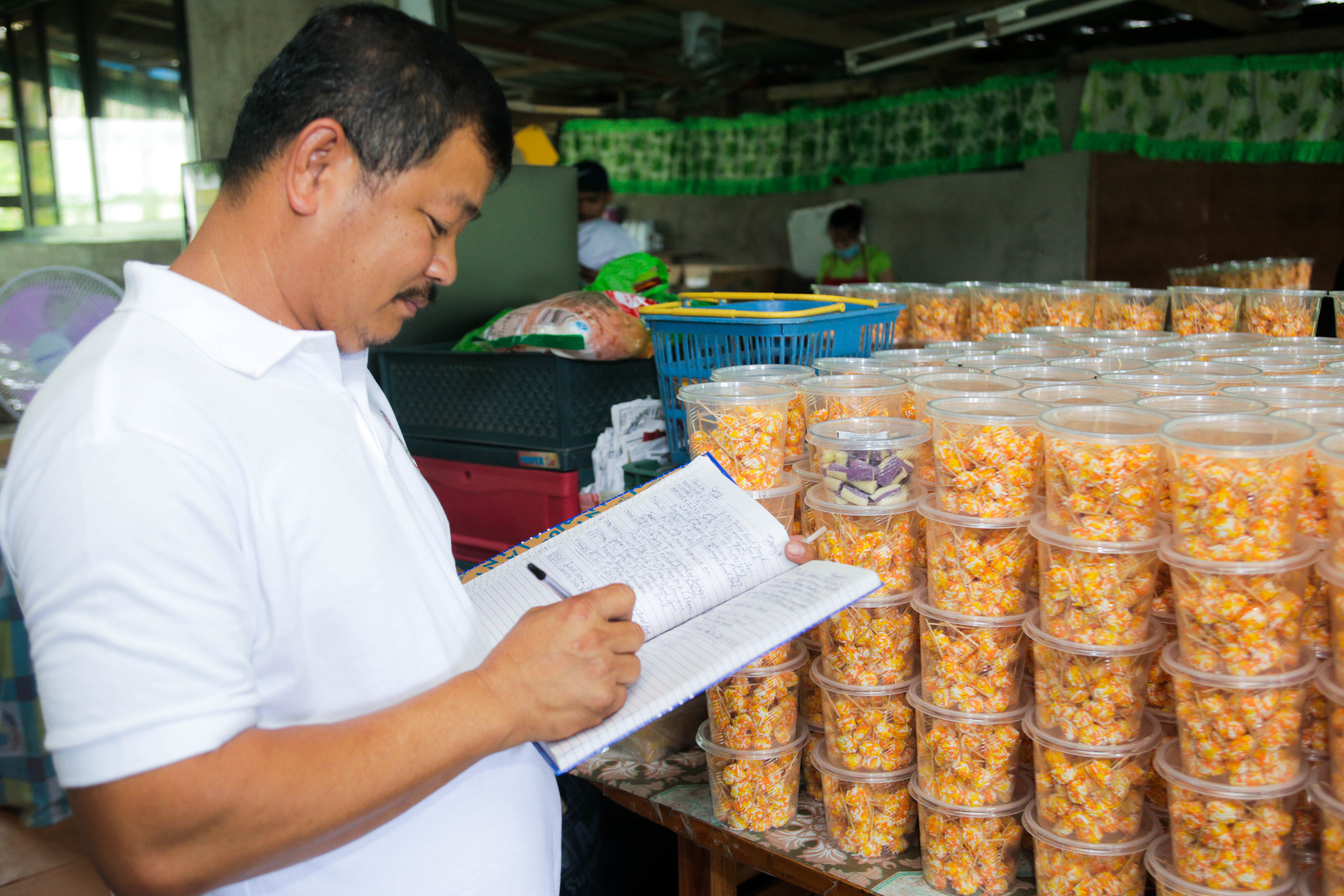
He is now distributing his products in different parts of Batangas, as well as Laguna, Quezon and Manila. He has a total of 28 employees, including two family members. He has also acquired the necessary business permits from the barangay and the Department of Trade and Industry. Currently he is applying for registration with the Bureau of Internal Revenue and the Food and Drug Administration.
Not one to bear a grudge, Dagame helps other members of the community who are in the same business. “I supply materials to other manufacturers. I do not see them as competitors,” he said. Dagame buys his raw materials at wholesale prices and sells them at low cost “so they (other manufacturers) would also make money.”
He also promotes good farming practices as president of the Farmer’s Organization in Lipa and encourages fellow members of the Lipa Beekeepers Cooperative, which he helped organize, to raise bees to increase yield. He plans to promote Batangas’ kapeng barako (indigenous coffee beans) and honey by incorporating them in his products.
Bangko Kabayan remains Dagame’s reliable ally and partner. His latest loan of P300,000 was used to further expand his business. He values his relationship with Bangko Kabayan, which provided the money to start his business and continuously helps him grow it. He bought recently a piece of land where he built his production unit and storage space for stocks and products.
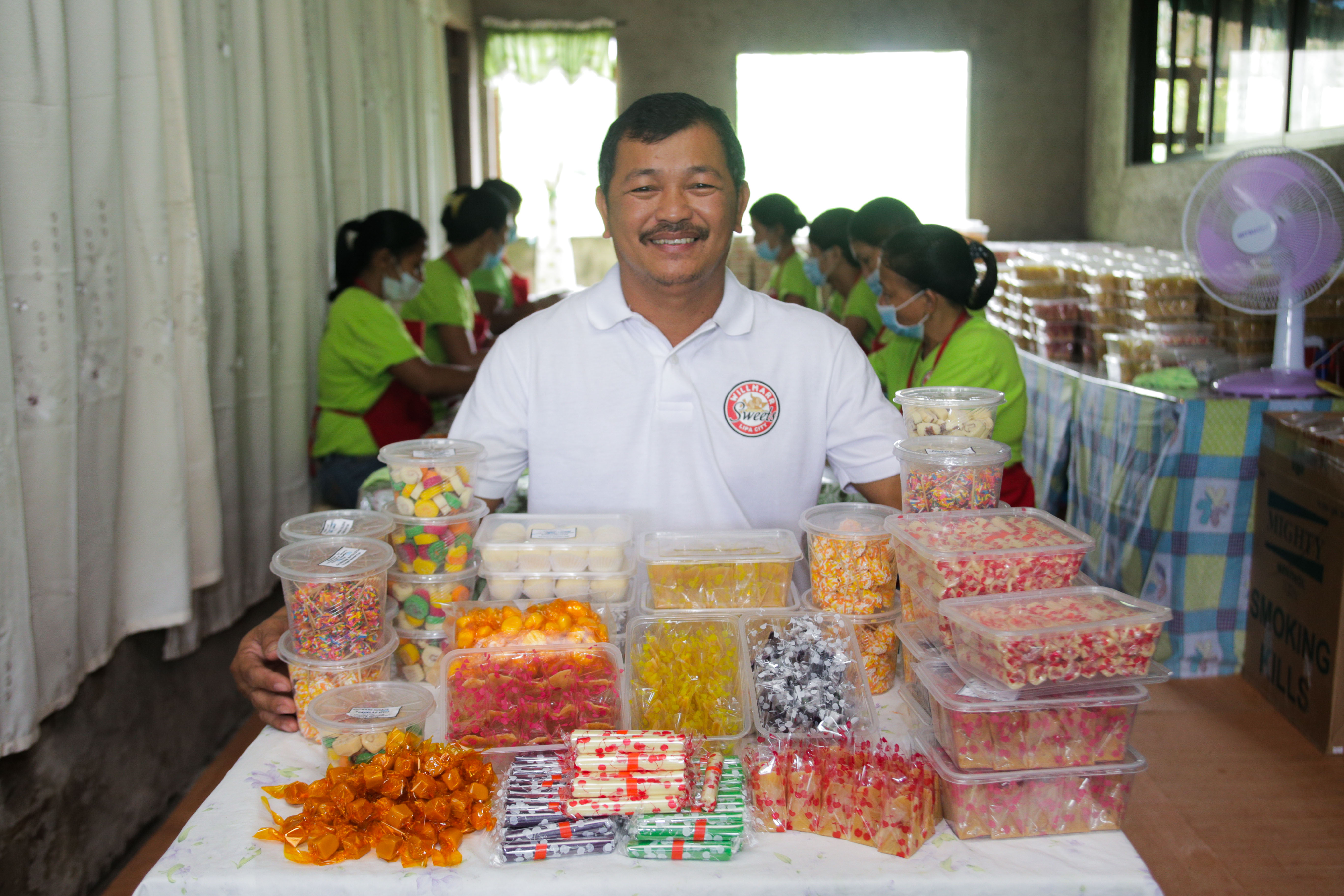
Of his total income, Dagame reinvests 80 percent. The other 20 percent goes to household expenses and saving.
Despite the competition, Dagame’s business remains healthy not just because he respects and helps fellow entrepreneurs but also because of the quality of his products and his commitment to deliver on time. He even helps customers promote their own products in his community.
His formal schooling may have been limited but Dagame has not stopped learning, continuing to participate in training and attending seminars. He is networking with different organizations, like the Department of Agriculture in Lipa, Department of Science and Technology and LBC to develop new products and new flavors. He is reaching out to his Chinese customers to find out he can move to the international market.
Tulungan or cooperation seems to be the guiding principle of Dagame’s enterprise. Despite his earlier failure due to fierce and not so fair competition, he remains willing and ready to help even those who are engaged in the same business. His heart is indeed in the right place.

